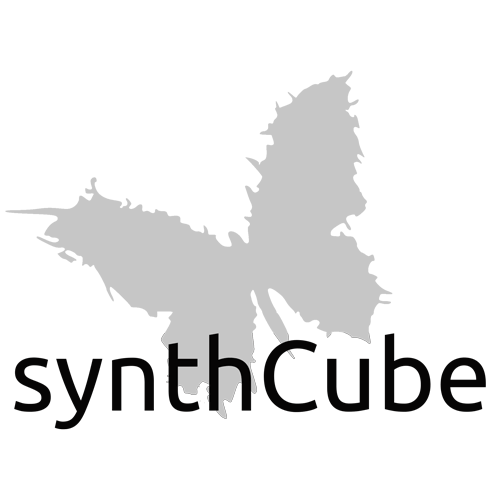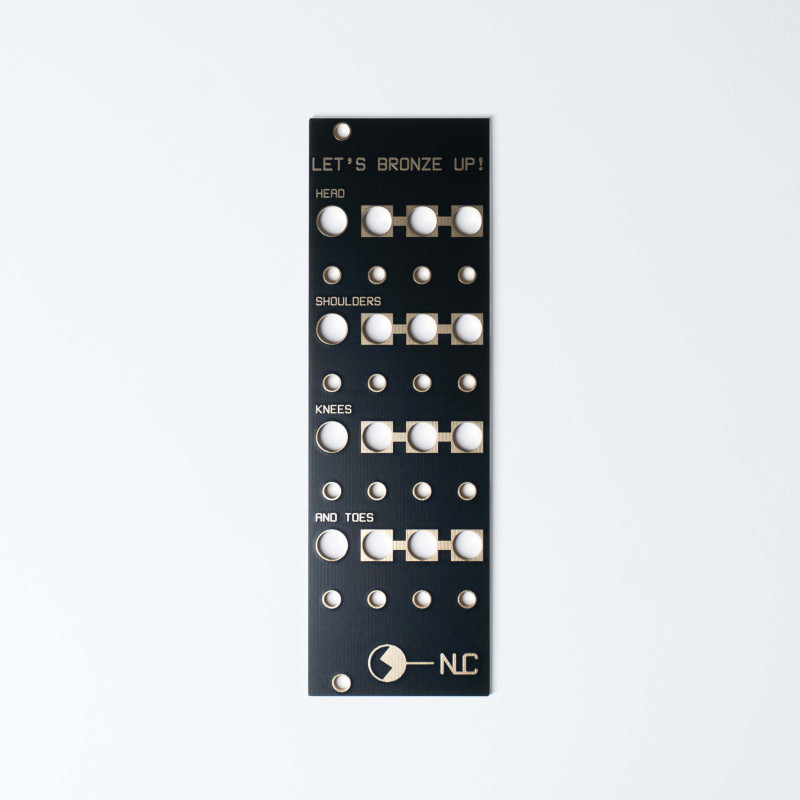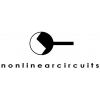NLC1126 Lets Bronze Up (Black NLC)
NLC1126 Lets Bronze Up (Black NLC)
This module is based on four Signum circuits but converts them to process 4 signals rather than two, extracting positive and negative aspects of the incoming signals and re-attaching them to each other in various ways. The switching is done by the incoming signals, normally switching happens at zero-crossing but I have set these to switch at approx. 0.2V, so the incoming signals should get to or below 0V at times for the module to work. If you want a zero crossing switch, it is a simple mod, just leave off one 100k resistor.
Signum circuits were developed for chaos research and are used as crude and cheap multipliers.
It is similar to Let’s Splosh in the sense that you patch in 2-4 signals and get multiple complex but related outputs but this is quite glitchy and sharp at times, not nearly as user friendly, hence the name (comes from Aussie prison slang for a popular form of protest).
The inputs are labelled – Head, Shoulders, Knees and Toes. The rest are all outputs, the two centre columns are partial outputs that emit positive or negative aspects of the signals, so turn off at times. The right side column outputs contain the full spectrum and are rarely quiet.
If just using two inputs, patch them into Heads and Knees, as the signals will then switch Shoulders and And Toes as well.
These kits and assembled modules are offered on demand, click the link to learn more.
| Module Parameters | |
| Format | Eurorack |
| Pedal Specs | |
| Width | 8hp |


